Everybody has had those moments after walking out of an interview when they feel great about how it went. And it’s not that the feeling isn’t justified, but there is a long journey with twists and turns that may or may not lead to you getting a job.
Don’t assume you have a job offer in the bag when you walk out the door. Instead, do your due diligence and follow up with the interviewer — but be aware of these unprofessional behaviors that can hurt your chances more than help them.
Neglecting to Ask Questions About the Hiring Process
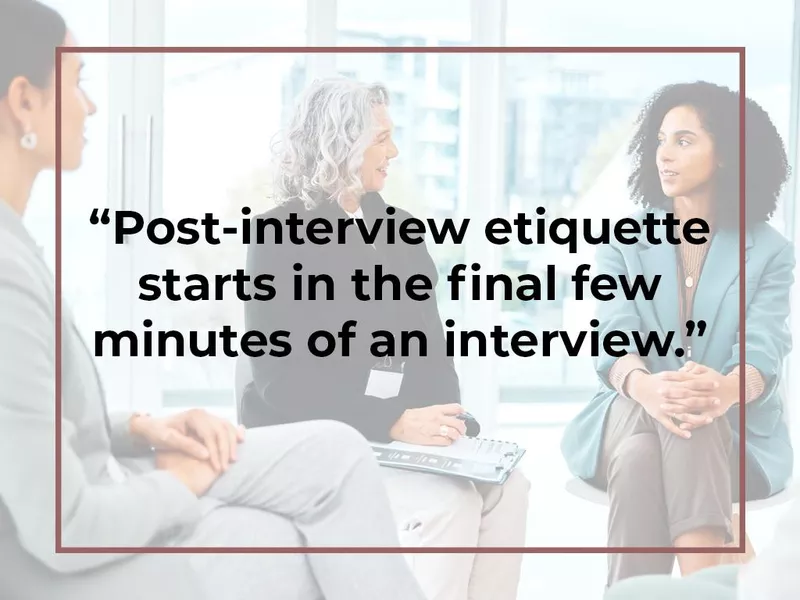
Post-interview etiquette starts in the final few minutes of an interview. So, ask the person interviewing you what the next steps in the hiring process are, such as:
- “How long will it take before you make a decision?”
- “Will there be a second interview?”
The interviewer will likely give you their contact information on a business card, but if they don’t, make sure to ask for it. This is the person to whom you’ll send a thank you note.
Sending a Thank You Note Too Quickly
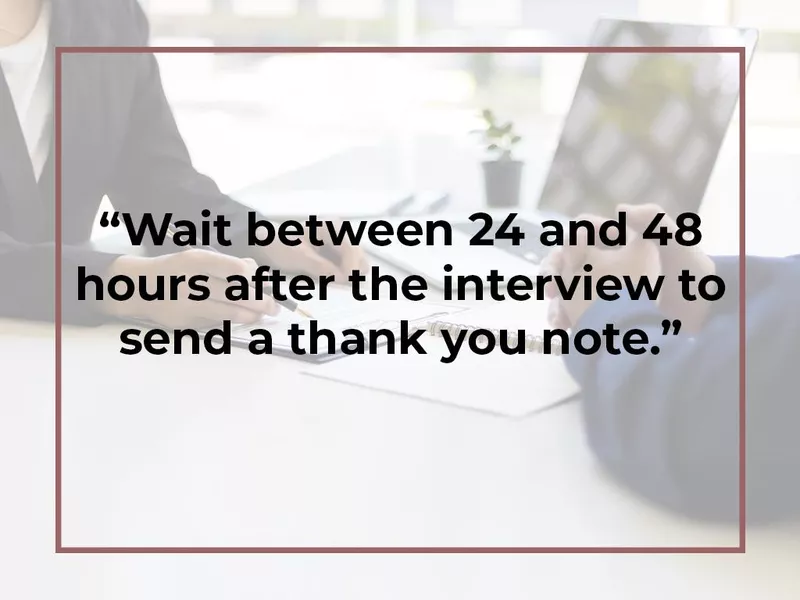
So, when should you send a thank you note to your interviewer?
You don’t want to seem too eager, so don’t send a note immediately. Wait between 24 and 48 hours after the interview to send a thank you note. It can be via email or snail mail (you can be the judge, based on how formal the company is).
If the interview occurred on a Friday, send the note on a Monday or Tuesday. If you cannot send the note that soon, do so it as soon as possible.
Stalking a Potential Employer
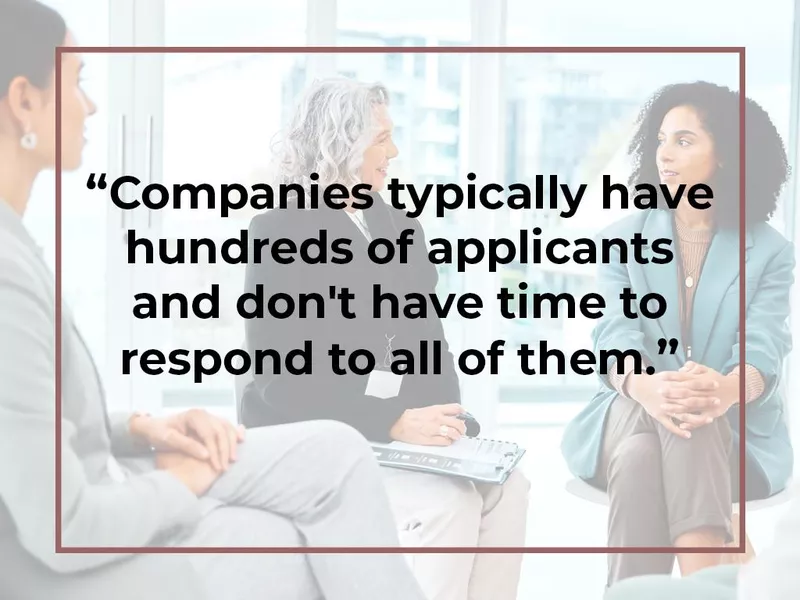
Chances are, after sending a thank you note, you won’t hear anything for a while, even if you’re still being considered. Companies typically have hundreds of applicants and don’t have time to respond to all of them.
That doesn’t mean you should send anything other than the thank you note. Multiple follow-ups without a response can hurt your chances of getting a job if they are still considering you.
Neglecting to Send a Thank You Note
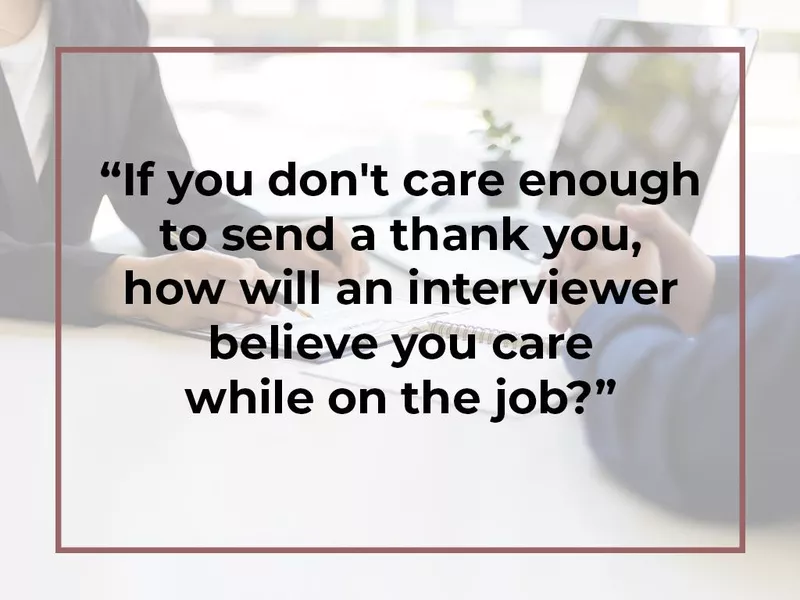
The opposite of appearing stalkerish after a job interview is appearing indifferent. Some people who leave an interview never send a thank you note, and that can hurt their chances just as much as following up multiple times.
If you don’t care enough to send a thank you, how will an interviewer believe you care while on the job?
Sending a Generic Note
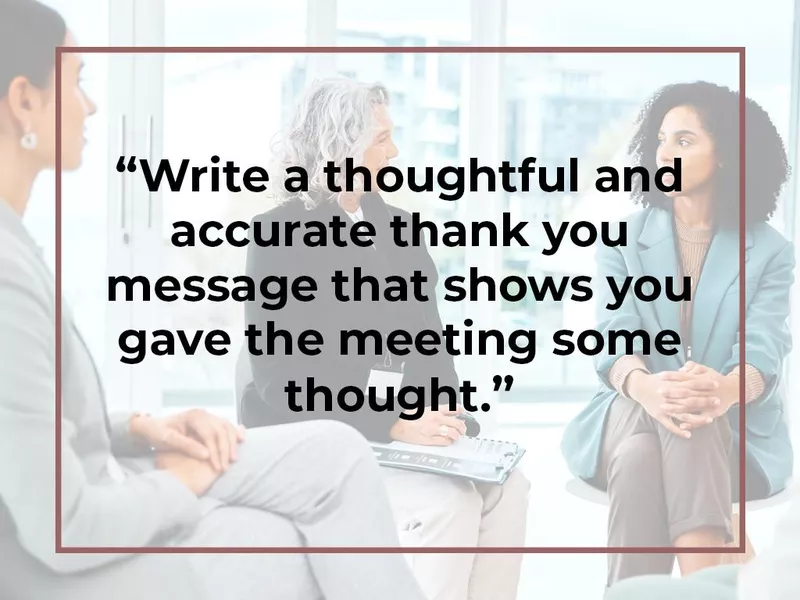
An interviewer can spot a generic thank you note a mile away. So, during the interview, take a few notes about specific anecdotes. Then, write a thoughtful and accurate thank you message that shows you gave the meeting some thought.
Make sure the letter is well-organized, and edit it for correct spelling, punctuation and grammar before hitting “send.”
Ghosting When You Don’t Want the Job
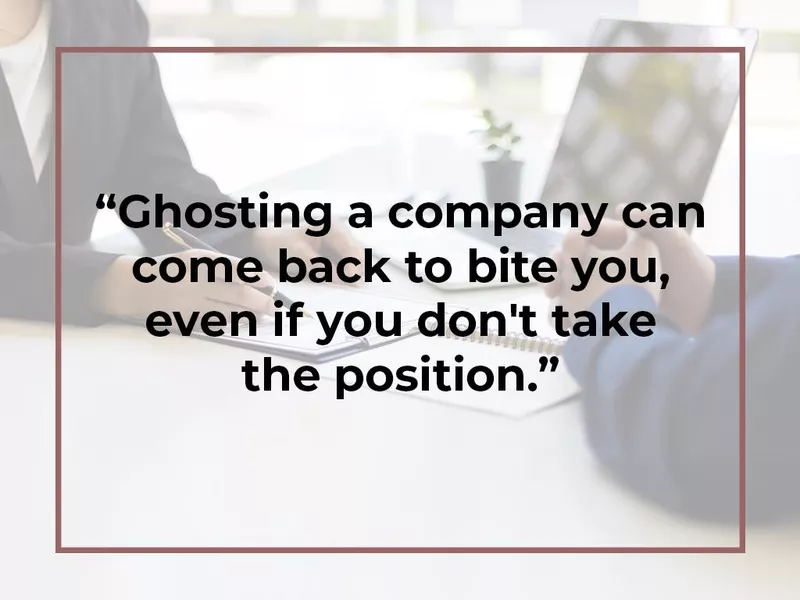
If you get offered the job but it isn’t your cup of tea, make sure to thank the person reaching out with the offer nonetheless.
Ghosting a company can come back to bite you, even if you don’t take the position. Some industries are quite small, and your reputation may precede you.
You don’t have to go into much detail about why you’re not taking the job, but you can nevertheless thank the person offering it.
Acknowledging Your Mistakes

If you made a mistake in the interview, make sure to acknowledge it in the thank you note. Most gaffes are fairly easy to recover from.
If you’re told you didn’t get the job, send a follow-up to the interviewer thanking them for the interview and expressing an interest in future opportunities. This makes a good impression and leaves the door open.
Posting About the Interview on Social Media
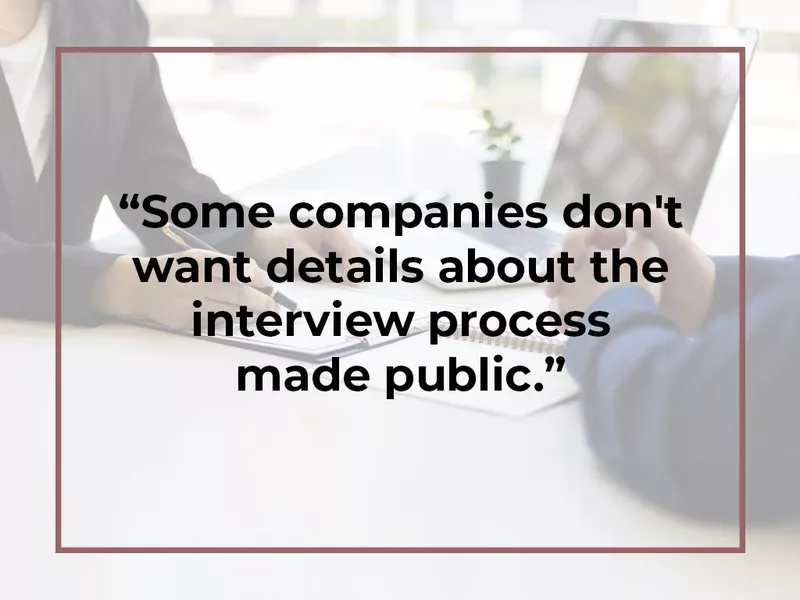
It should go without saying that you shouldn’t post anything negative about the interview process on social media, but some people do.
Keep in mind that some companies don’t want details about the interview process made public. Even if the interview went well, it’s best not to post about your experience.
Putting All Your Eggs in One Basket
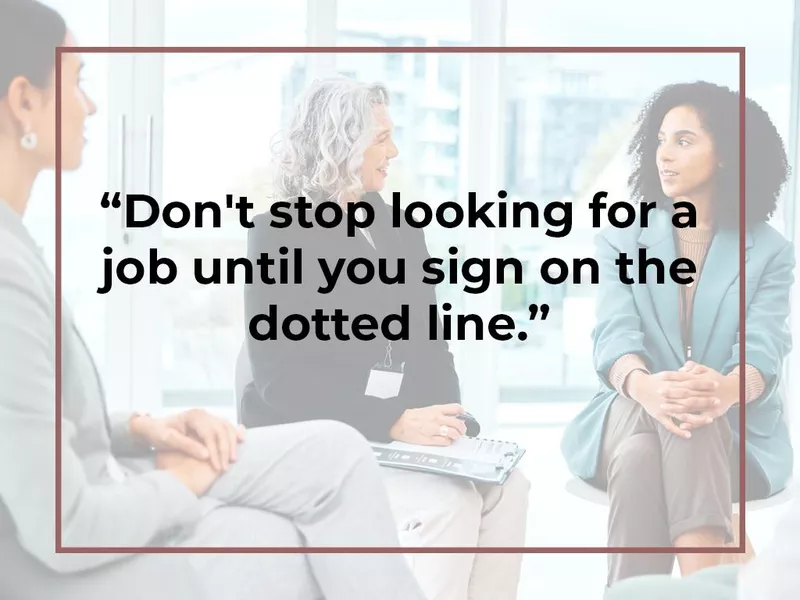
If you got a good feeling from the interview, that’s great! Hopefully, it will lead to a job or at least a second interview.
However, the hiring process may take a long time — sometimes weeks or even months. Nothing is a sure thing until you get the offer, so don’t stop looking for a job until you sign on the dotted line.
Neglecting to Grow Your Network Through the Interview Experience
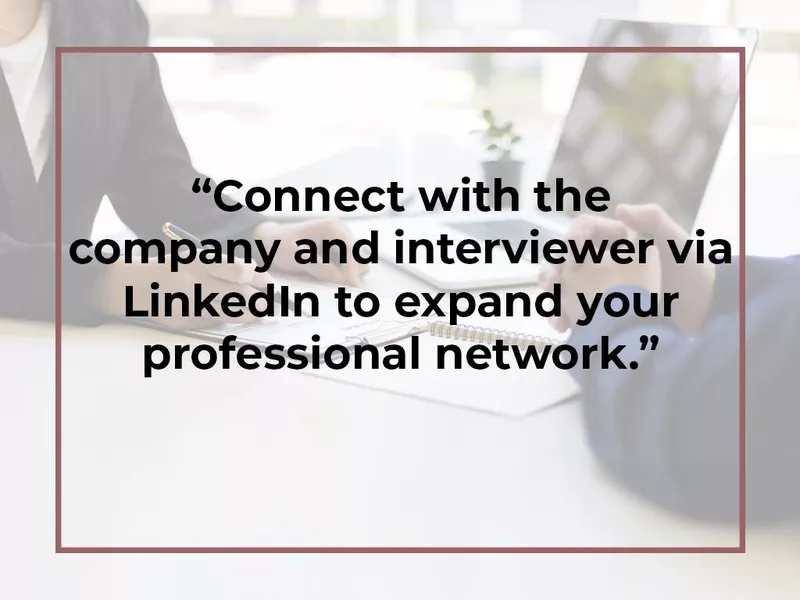
If you didn’t get the job, it would be a shame if you didn’t use the experience to learn how to navigate the job search going forward. You can still connect with the company and interviewer via LinkedIn to expand your professional network.
If they don’t immediately accept the request, don’t worry. They may not check the site very often, and there’s no downside in sending an invite.
For more mistakes to avoid in interviews, check out “Don’t Say That: Phrases to Avoid in Job Interviews.”